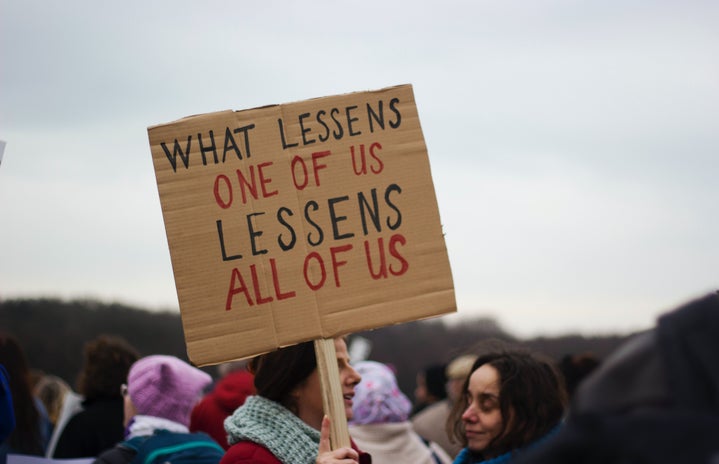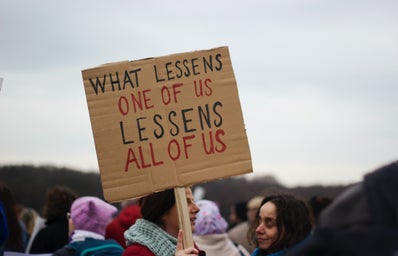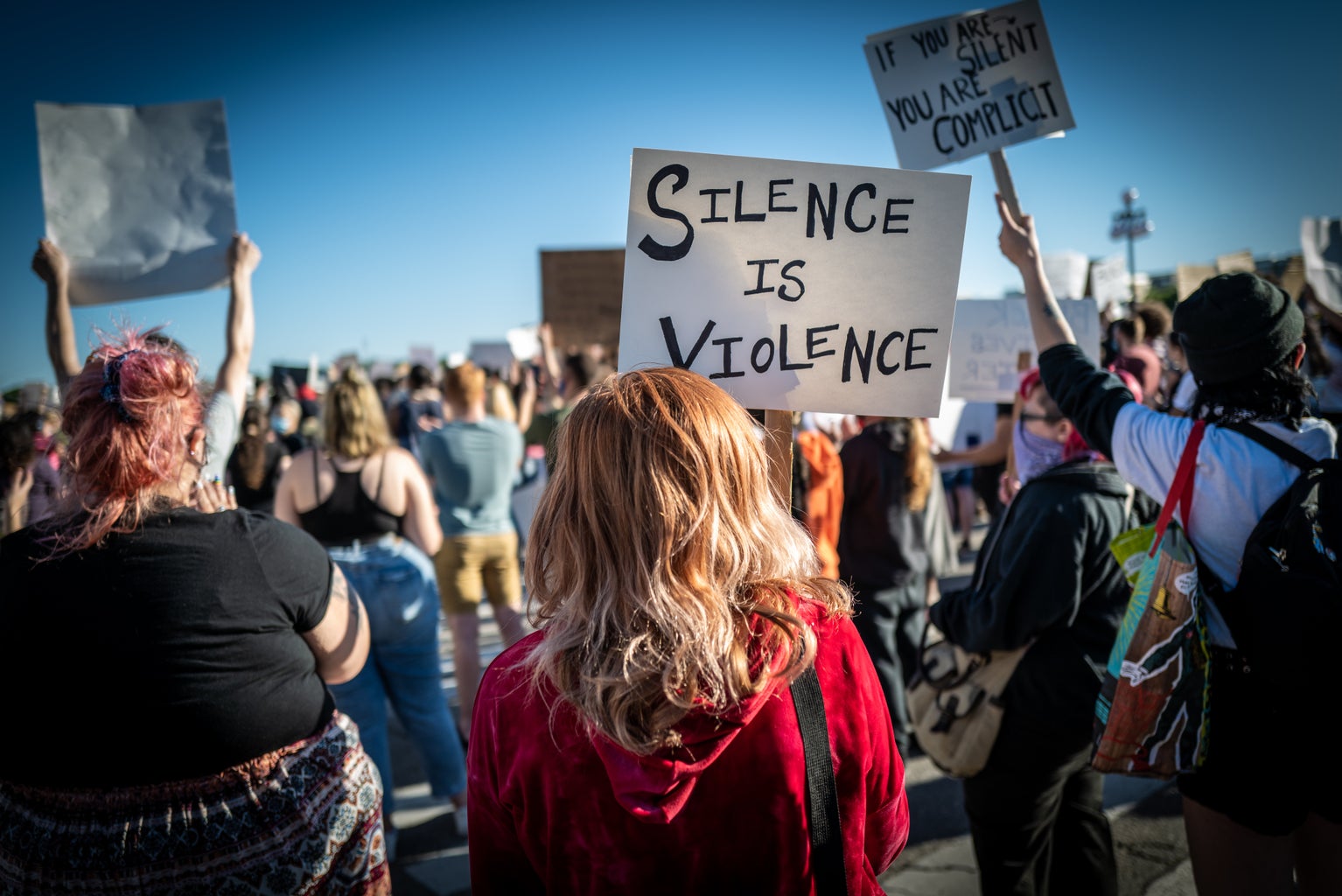“Oh, I don’t do politics.”
I’m sure we’ve all heard it. Maybe you asked someone their thoughts on a major election, and they threw this gem at you as if politics were some niche hobby like bee-keeping or collecting antiques. The nonchalant dismissal of politics is often delivered with a smugness that implies superiority, as if disengaging from the chaos of the world makes one purer, smarter, or just too cool to care. But the truth is that calling yourself “apolitical” isn’t the serve that people think it is. It’s a lazy cop-out, a privilege-laden stance that quietly screams, “I don’t want to deal with the messiness of reality.”
What does being apolitical really mean?
At first glance, being apolitical might sound like a neutral stance. “I’m not picking sides,” the apolitical person insists as if refusing to engage absolves them of complicity. But news flash: there’s no such thing as true neutrality in a world where politics shapes nearly every aspect of our lives. Whether you acknowledge it or not, your actions—or lack thereof—have political implications.
By opting out of politics, you’re essentially supporting the status quo. That means you’re indirectly endorsing systems that benefit the powerful, maintain systemic inequities, and perpetuate injustices. The government doesn’t stop functioning because you’ve decided to abstain. Rent prices, healthcare policies, climate decisions, and even the algorithms behind your favourite social media platforms continue to impact your life and others’, regardless of your self-proclaimed apathy.
So, let’s call being “apolitical” what it really is: a passive acceptance of how things are. It’s not a refusal to take a side; it’s choosing the side that benefits from your silence.
The Privilege of Staying Silent
The “apolitical” stance is often born out of privilege. If you can afford to ignore politics, it’s probably because the system already works well enough for you. Congratulations, your life isn’t significantly threatened by systemic racism, economic inequality, or climate disasters, at least yet. But for millions of others, politics isn’t a choice; it’s survival.
Imagine a sinking ship where some passengers are scrambling to patch holes while others sip cocktails on the upper deck, refusing to acknowledge the problem. Apolitical people are those cocktail-sippers. Sure, they might not have drilled the holes themselves, but their inaction guarantees the water keeps rising.
And it gets worse: apathy is contagious. When one person dismisses politics as “too messy” or “too depressing,” they set an example for others to do the same. Over time, this collective inaction leaves decision-making in the hands of those who are more than willing to wield power, often to serve their own interests. Guess who suffers then? Everyone.
Straight from the Expert: A Political Science Major’s Take
For some expert insight, I had a chat with my friend Deeksha Choudhary (LinkedIn), a political science major at Miranda House, University of Delhi. Here’s how the conversation went:
Me: Why do you think some people choose to call themselves “apolitical”?
Deeksha: First of all, I think saying that you’re apolitical most probably means you come from a position of such privilege that you can afford not bothering about politics, or that you’re insufferably in denial. Moreover, lots of people hide behind the veil of apoliticism as it’s the perfect way to avoid difficult but significant conversations about the existing system. Lots of people also do not like the attention they might receive if they share their opinions on different matters. After all, escaping our reality is far easier than dealing with it.
Me: Do you think being apolitical is truly neutral, or does it lean in a certain direction?
Deeksha: In my opinion, if you’re apolitical then you’re intentionally or unintentionally supporting the existing system. So yeah, it is never truly neutral in reality. For example, someone living under a totalitarian regime where certain groups or all the citizens, in general, do not have political freedom and do not have other fundamental needs fulfilled by the state, and then calling themselves apolitical just means that they’re okay with the existing state of being or choose to be comfortably clueless.
Me: What’s the impact of apathy on larger societal and political systems?
Deeksha: I know this is quite blunt but I believe that apoliticism as an ideology is simply a guide to apathy while the world burns. I mean it’s true that ignorance is bliss, but it’s also pretty harmful. As citizens of our respective countries and as world citizens in general, we are accountable for many things around us, and being aware about the government that’s ruling us and raising our voice when we witness something wrong is a responsibility, and not something that we can simply choose not to do. Choosing to say, “I don’t do politics”, is basically avoiding accountability and as a result, contributing to making our political system undemocratic. It’s crucial to understand that your apathy eventually becomes someone else’s problem.
Me: How would you respond to someone who says, “Politics doesn’t affect me”?
Deeksha: Well, honestly, first I’d laugh, hoping that they’re joking. But, on a serious note, it’s surprisingly a widely held belief that politics is something that is unrelated to our personal life. I guess many people haven’t heard the phrase “Personal is Political”. So, I’d respond by saying that politics affects everyone. The smallest of political decisions the government takes affects all aspects of our lives, from education to healthcare, from gender equality to criminal justice, down to the quality of the air you breathe! Our personal beliefs, our traditions, culture, religion and identity; everything is affected by politics. A nation’s political system takes the turn that the citizens of that nation let it take. So, one might not notice but politics truly affects the smallest and the biggest of things, as well as people belonging to each level of the social hierarchy.
Me: Do you think privilege plays a role in apolitical attitudes?
Deeksha: Absolutely yes! If a person says they’re apolitical, they probably benefit from the existing system on a daily basis and not even notice it. If one can sleep soundly every night while the world crashes down, that probably means they are comfortably sitting on a throne that is so above everything that they can afford to not give a crap. Ignoring politics does not make you cool, it just makes you complicit. A person might not be political, but their privilege sure is!
Me: What advice would you give to someone who wants to start understanding or engaging with politics?
Deeksha: For starters, one must educate themselves well on politics, and for that purpose, one must choose the right sources. Kindly do not lean on WhatsApp groups, and social media in general for your political education, as it might leave you enraged and miserable (or worse, a hysterical fanboy of some insufferable political leader). Rather, choose better resources like newspapers, books from authors with varying political beliefs and try observing your surroundings with an open mind and talking to people with different views. You might discover so many things you never noticed before, and I assure you it would feel wonderfully enlightening.
Her insights hit the nail on the head. It’s clear that being apolitical isn’t as “neutral” as people like to believe. It’s a passive endorsement of the systems in place, and often, a reflection of privilege.
Why It’s Time to Get Political
Let’s be real: no one’s asking you to become a full-time activist or memorise parliamentary procedures. But if you care about your own future or that of those less privileged than you, it’s time to start paying attention.
Start small:
- Read the news (not just memes on Instagram).
- Have conversations with people who challenge your views.
- And most importantly, vote.
It’s not about knowing everything; it’s about caring enough to engage. Because every time you shrug and say, “Politics isn’t my thing,” you’re leaving the decisions that shape your life in the hands of someone else.
Don’t be Comfortably Clueless
Being apolitical isn’t the enlightened, chill stance some people think it is. It’s a privilege-laden luxury that does more harm than good. You don’t have to be a policy expert or march in protests to make a difference, but you do need to care enough to engage. The world doesn’t need more apathy. It needs more informed, compassionate people willing to step up, even in small ways.
So, to the apolitical crowd: the next time you’re tempted to dismiss politics as “not your thing,” remember that the world is shaped by those who show up. Maybe it’s time you did, too.
Can’t get enough of Her Campus at MUJ? Be sure to follow us on Instagram and read our latest tweets!



